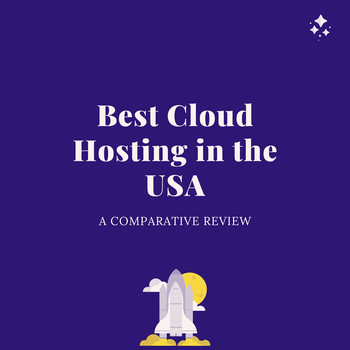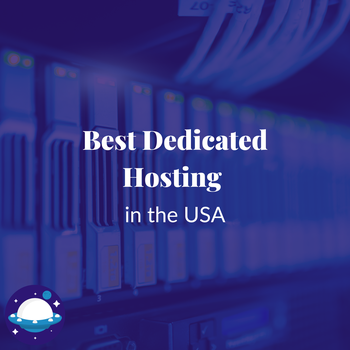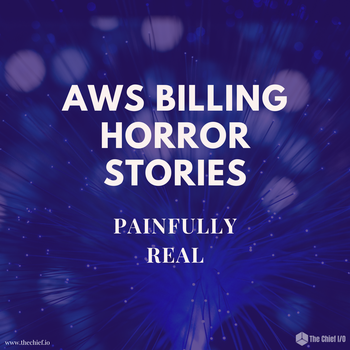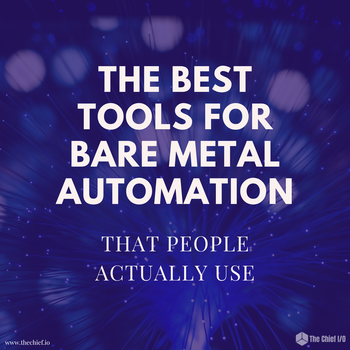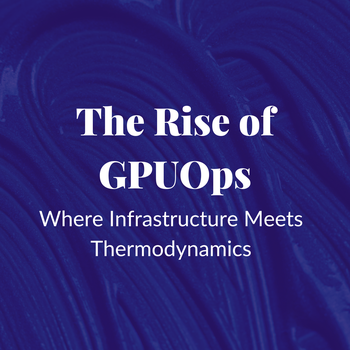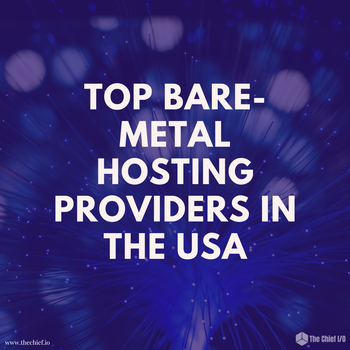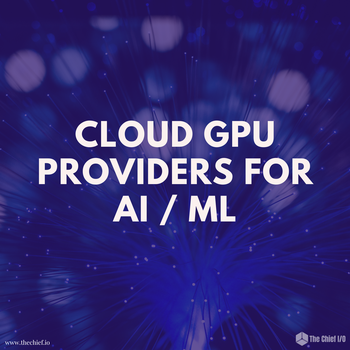How Machine Learning and Artificial Intelligence are Disrupting DevOps
in AIOps

Many IT teams are currently working on digital transformation projects. After all, companies want to benefit from current technologies such as the cloud, machine learning (ML), and the Internet of Things (IoT).
However, according to a study by Appian last year, 91 percent of respondents believe they need to fix problems rather quickly than thoroughly, as they need to focus on updating their business operations. The speed of updates and customizations using DevOps measure is measured in days rather than months or years. Frequently, IT operations cannot keep up with this pace, and digitization will fail in the long term.
The solution to many of the associated DevOps challenges lies in a different kind of digital transformation - based on machine learning and artificial intelligence (AI). Although it is often portrayed as a threat to the public, it offers companies an excellent opportunity to improve their productivity and security. Above all, ML is not about dangerous robots (à la Terminator), but about sophisticated technology platforms that automate and improve IT operations. The process can be done with the help of analytics and machine learning to investigate large amounts of data from operational tools. The process is widely called as Artificial Intelligence for IT Operations or AIOps.
How Machine Learning is Serving the DevOps Ecosystem
The greatest strength of AIOps lies in its ability to automatically detect, analyze, and even fix IT issues in real-time. It means that challenges are resolved quickly, accurately, and with far less effort than before, also when the IT team is busy with other tasks. In the future, ML and AI will intelligently automate many IT processes while delivering benefits throughout the operational lifecycle. Another strength of the approach is that it streamlines and improves IT operations such as Continuous Integration and Deployment at DevOps.
ML can even actively and often preventively detect incidents and correlate events, even in complex overall systems. For example, companies have very quickly tried to adapt their cloud operation to the new requirements in the path of the General Data Protection Regulation. While IT teams are busy cataloging and protecting a company's data, all newly generated or stored data must also be compliant. By using ML and AI, DevOps teams can focus on other coding aspects of compliance while monitoring security compliance through appropriate tools in real-time. These can then inform a user about a vulnerability or shut down a non-compliant computer. As a result, they widely ensure a smooth and secure business process.
Another example is that many logs from applications, servers, devices, and others take up GBs of storage space per day when there is so much more data to manage. All this information generated in DevOps processes is on server logs, application deployment, and transaction traces results in application monitoring. The effective way to evaluate this vast scale of records and data in real-time is to implement machine learning technology.
Of course, AIOps is not just about supporting ongoing digital transformation projects. In today's business world, it's no longer enough to keep up with innovation; companies must also anticipate future developments. While this requires employees to handle a massive amount of data, ML, combined with DevOps integration, can be used to correlate millions of records to discover patterns of behavior or trends. That's how companies identify areas where customers struggle with issues or want change-and to innovate accordingly.
AIOps DevOps Platforms
The functionality of several machine learning tools from the established leaders and startups make DevOps process more robust. Below, we can look at some of the machine learning tools.
Nexthink
The adoption of the digital workplace is sometimes not so ideal, fast, and easy as one would wish. Innovation and changing habits can only lead to disruption. Users need to overcome these disruptions to adopt the new tools and practices by following the rules. One of the challenges mentioned by Nexthink is that the experience of employees depends on each employee. And half of the employees are dissatisfied with their digital work environment.
To improve the Digital Experience Score, Switzerland based Nexthink offers a platform that provides both a measure of perceived quality and self-remediation tools. The AI-based tool measure employee experience, analyze the data and use the data to engage, integrate, and automate existing IT infrastructure.
Datadog
Datadog is a monitoring service for cloud-based applications, which delivers monitoring of databases, servers, services, and tools through a data analysis platform based on "Software as a Service."
Founded by French engineers in 2010, Datadog helps DevOps see their entire infrastructure, including applications, servers, cloud, metrics, services, and more in one dashboard.
The dashboard is real-time in nature and can be tailored for the precise requirements of a team. It has the discussion tools, full-text search capabilities for events and metrics, and exchange. These features help the team to work together using the knowledge they gain. The dashboard also has API visibility to house unique infrastructure.
Datadog has also integrated with several ready-to-use clouds, and various developers used software tools, so the team's established workflows will not be modified or interrupted when adopting the Datadog service.
Loom Systems
Loom Systems, the Israeli based startup, offers a system that enables organizations to predict and resolve digital systems malfunctions before customers complain. The artificial intelligence-based product enables disruptive customer experience through the early detection of failures in the digital age. Since its launch two years ago, Loom Systems has been selected by Fortune 100 as the leading AIOps product in the field.
Loom Systems' Sophie, the AIOps based solution, foresees and resolves IT-related incidents in companies undergoing a cloud migration or digital transformation. The tool offers automated behavior prediction, root cause analysis, and data-driven recommendations to drive the business forward.
Logz.io
Another Israeli based company, Logz.io, has developed a platform based on the open-source ELK Stack and integrates data, user behaviors, and community information to help companies analyze billions of computing events to expose operational risks that could disrupt their business operations.
Recently, the company has collaborated with Microsoft to offer Azure customers access to technology in a simple and accessible way. ELK is the most popular engine for log analysis in the world, and engineers need a quick and easy way to apply this technology. Working with Azure would enable DevOps teams to build and monitor their products through the ELK cloud easily.
OpsRamp
OpsRamp, which can be used as a cloud service, not only supports the continuous operation of all business systems, but you can also visualize and control a wide variety of hybrid systems with an integrated interface. The SaaS model OpsRamp provides an operation monitoring and automation service for IT infrastructure in a hybrid cloud environment
It is possible to automate monotonous work by hand. OpsRamp manages all IT devices and acts as a central hub for IT teams, ranging from actual system operations to service management. OpsRamp can be used for discovery, monitoring, troubleshooting, maintenance, etc. This product supports not only the functions necessary for system management but also compliance and various reporting functions.
Machine Learning tools for DevOps
The functionality of several machine learning tools from the established leaders and startups make DevOps process more robust. Below, we can look at some of the machine learning tools.
Scikit-Learn
The Scikit-Learn is a library of machine learning open source to the programming language Python. It includes some sorting, regression, and grouping algorithms, including support vector machines, and is designed to interact with the NumPy and SciPy numeric and scientific Python libraries. Scikit-Learn is a useful tool for data analysis and data mining.
TensorFlow
TensorFlow is an open-source library of open source for machine learning applicable to a wide variety of tasks. It is a system for creating and training neural networks to detect and decipher patterns and correlations, analogous (but not equal) to the way humans learn and reason. It is used for both Google research and production and is slowly replacing its proprietary code predecessor, DistBelief.
The Google Brain team developed TensorFlow for internal use within the company. It was released under the open-source license Apache 2.0.
WEKA
The WEKA (Waikato Environment for Knowledge Analysis) software package began writing in 1993 using Java at the University of Waikato, New Zealand and was later acquired by Pentaho company in late 2006. Weka aims to combine algorithms from diverse methods in the sub-area of AI dedicated to the culture of machine learning.
RapidMiner
RapidMiner is a software platform data science developed by the eponymous company that offers an integrated environment for machine learning, data preparation, text mining, deep learning, and predictive analysis. It is used for professional and commercial apps as well as for research, rapid prototyping, education, and application development. RapidMiner supports all stages of the ML process, including result visualization, data preparation, validation, and model optimization.
Azure Machine Learning Studio
The Azure Machine Learning Studio is a visual drag and drops ML tool used to develop, assess, and deploy analytics models on your data. You need not know the programming language. The tool provides visually connecting modules and datasets to build your analysis model.
Google Cloud AutoML
Google Cloud AutoML has various products to suit your machine learning requirements including AutoML Vision (for image processing), AutoML Natural Language (for structure and meaning of the text, AutoML Video Intelligence (for video processing), AutoML Translation (translate between languages) and AutoML Tables (for structured data processing).
Conclusion
A study by Gartner shows that only five percent of big companies combine big data and machine learning. But by the year 2020, it will be about two-fifths. Increasing acceptance illustrates the importance of preparing for this change today. To do this, companies need to know what necessary data they own and what processes they can automate. They also need access to the expertise required to implement and operate AIOps.
It is where the strengths of AIOps lie. By giving companies a complete picture of the challenges that can be solved quickly, they can develop precisely the innovations that customers want. AIOps promises a new generation of customer-centric solutions that have a positive impact on the business. Then they are prepared for the future.
Get similar stories in your inbox weekly, for free
Share this story:
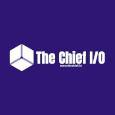
The Chief I/O
The team behind this website. We help IT leaders, decision-makers and IT professionals understand topics like Distributed Computing, AIOps & Cloud Native
Latest stories
Best Cloud Hosting in the USA
This article explores five notable cloud hosting offers in the USA in a detailed way.
Best Dedicated Hosting in the USA
In this article, we explore 5 of the best dedicated hosting providers in the USA: …
The best tools for bare metal automation that people actually use
Bare metal automation turns slow, error-prone server installs into repeatable, API-driven workflows by combining provisioning, …
HIPAA and PCI DSS Hosting for SMBs: How to Choose the Right Provider
HIPAA protects patient data; PCI DSS protects payment data. Many small and mid-sized businesses now …
The Rise of GPUOps: Where Infrastructure Meets Thermodynamics
GPUs used to be a line item. Now they're the heartbeat of modern infrastructure.
Top Bare-Metal Hosting Providers in the USA
In a cloud-first world, certain workloads still require full control over hardware. High-performance computing, latency-sensitive …
Top 8 Cloud GPU Providers for AI and Machine Learning
As AI and machine learning workloads grow in complexity and scale, the need for powerful, …
How ManageEngine Applications Manager Can Help Overcome Challenges In Kubernetes Monitoring
We tested ManageEngine Applications Manager to monitor different Kubernetes clusters. This post shares our review …
AIOps with Site24x7: Maximizing Efficiency at an Affordable Cost
In this post we'll dive deep into integrating AIOps in your business suing Site24x7 to …
A Review of Zoho ManageEngine
Zoho Corp., formerly known as AdventNet Inc., has established itself as a major player in …

